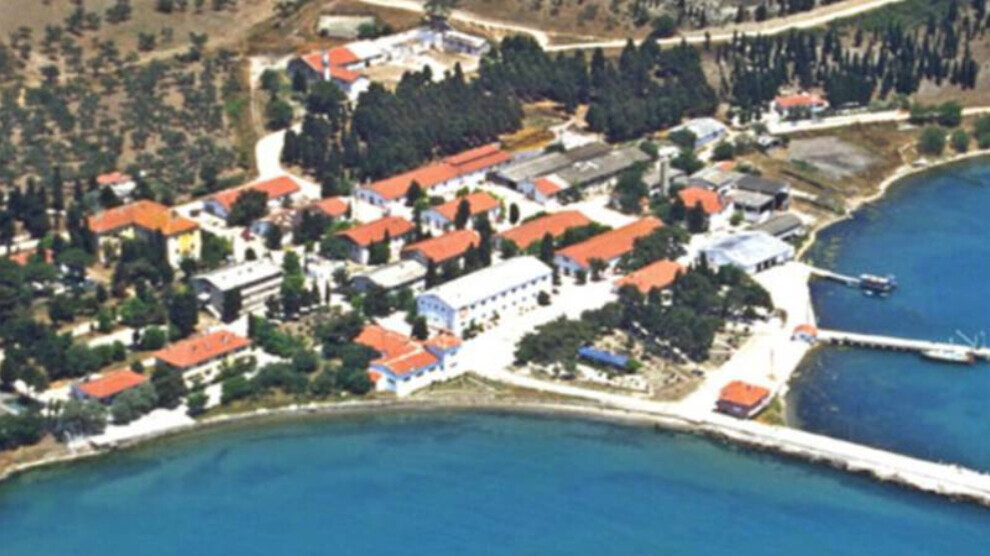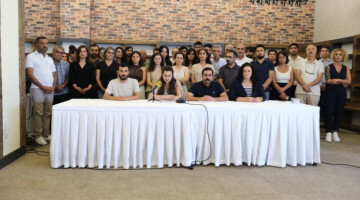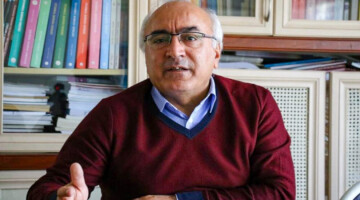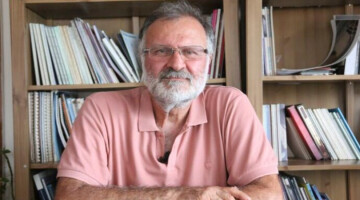The Turkish Constitutional Court has rejected as unfounded an appeal by the legal counsel of Imrali prisoners Ömer Hayri Konar, Veysi Aktaş and Hamili Yıldırım against a ban on contact. The decision to impose a contact ban on Abdullah Öcalan's three fellow prisoners with their family members and defense lawyers on the basis of disciplinary sanctions was deemed "correct" by the court. Accordingly, visits are not to be granted, nor are disciplinary sanctions imposed arbitrarily and beyond valid law to be prevented. Nor would obstacles to lawyers' access to investigative files have to be removed. These were two other important points of the complaint.
The contact ban imposed on September 23, 2020 by the Bursa Enforcement Court had been based on disciplinary sanctions against the Imrali prisoners from 2005 to 2009 and the "Roadmap for Negotiations" written by Abdullah Öcalan in 2009, which was submitted to the European Court of Human Rights (ECtHR) as a statement of defense. As a result, the Asrin Law Office, which represents Öcalan and his fellow prisoners, filed a constitutional complaint. In the case of Konar, Aktaş and Yıldırım, the court's decision has already been available since March 13, it was announced Monday. There has been no verdict on Abdullah Öcalan so far.
Ongoing proceedings in Ankara and Strasbourg
In 2020, Asrin Law Office filed 19 applications with the Constitutional Court and one with the European Court of Human Rights (ECtHR) in Strasbourg, in addition to the ongoing proceedings before regional courts related to its clients on Imrali. At the end of the year, 39 files were before the Constitutional Court and seven before the ECtHR. More have been added since the turn of the year. Asrin describes the Imrali island prison as a "legal black hole." At certain intervals, it says, there are new orders that are not subject to judicial review. In the past, contacts with Imrali were justified by defective boats and bad weather, but today there are orders from the disciplinary committee or courts that are produced by "copy-paste". The office received so far in almost no procedure complete file inspection, in recent times it does not even experience the reference of the current procedures. The legal isolation is intended to make the situation on Imrali permanent, the office says.
Imprisonment regime on Imrali aims at physical and physical destruction
For twenty months now, Kurdish leader Abdullah Öcalan has again been completely cut off from his legal counsel. He is being subjected to a detention regime aimed at physical and bodily destruction. The last client meeting on Imrali took place on August 7, 2019 - for the first time after eight years of no contact. Öcalan received his last visit from family members on March 3, 2020, after which he was granted telephone contact with his relatives only twice. His three fellow prisoners Ömer Hayri Konar, Veysi Aktaş and Hamili Yıldırım are also isolated from their outside world.
Contact ban already expired
On March 23, the no-contact order imposed in September expired, yet requests for visits by lawyers and families of Imrali detainees continue to be denied or ignored altogether. Contrary to European jurisprudence, the demands of the Committee for the Prevention of Torture (CPT) and a resolution of the Parliamentary Assembly of the Council of Europe (PACE), the Turkish state remains unwilling to lift the isolation on Imrali.















